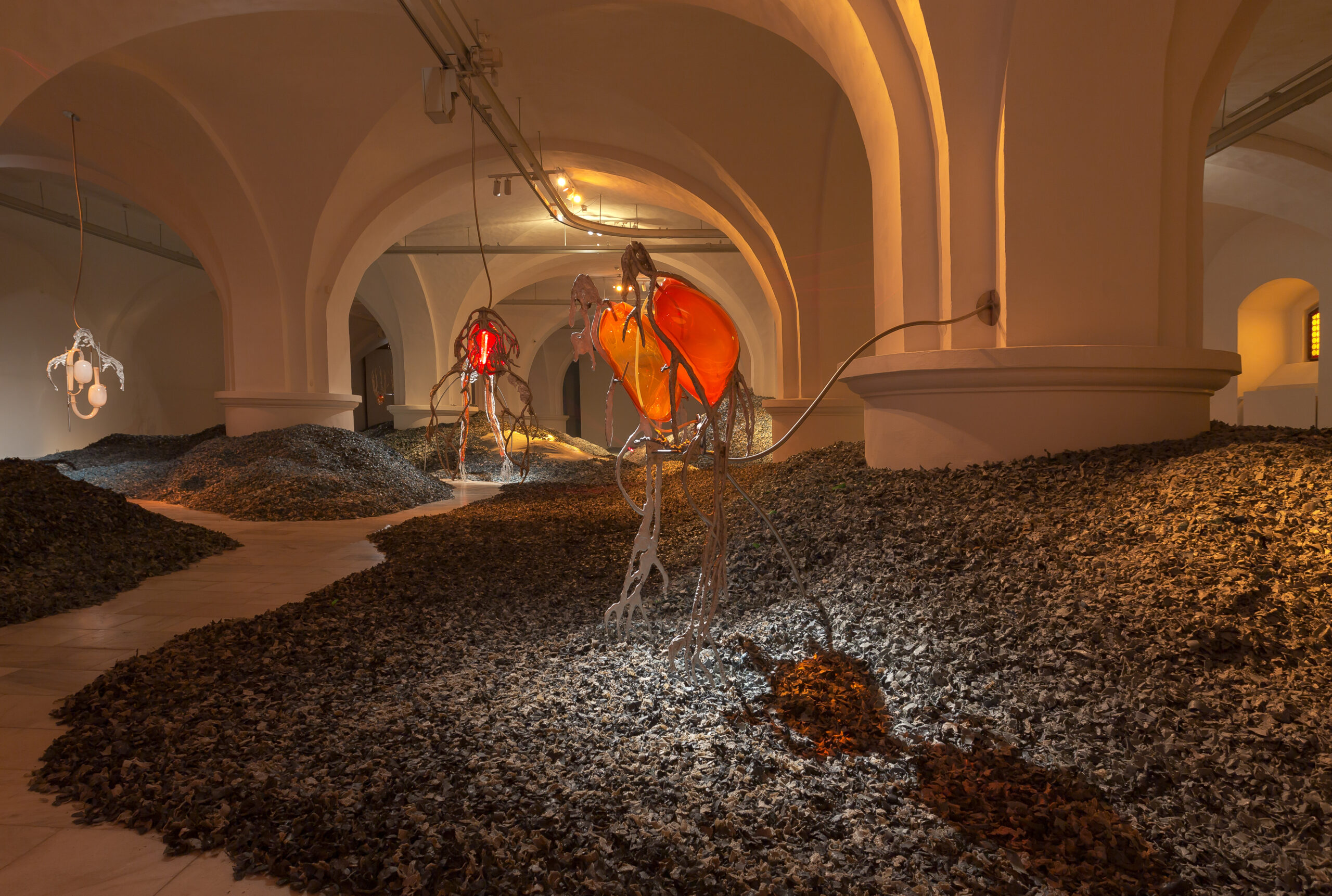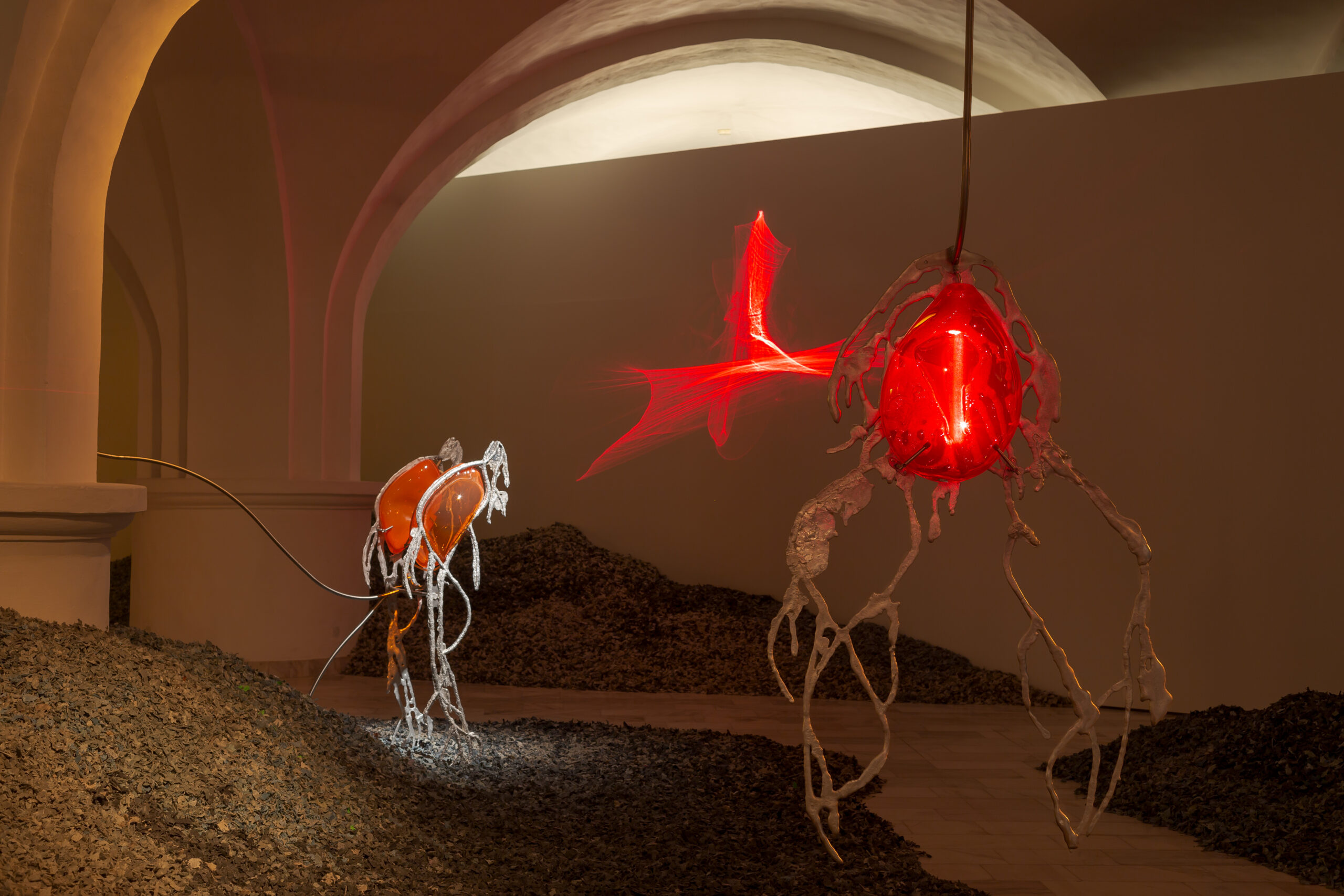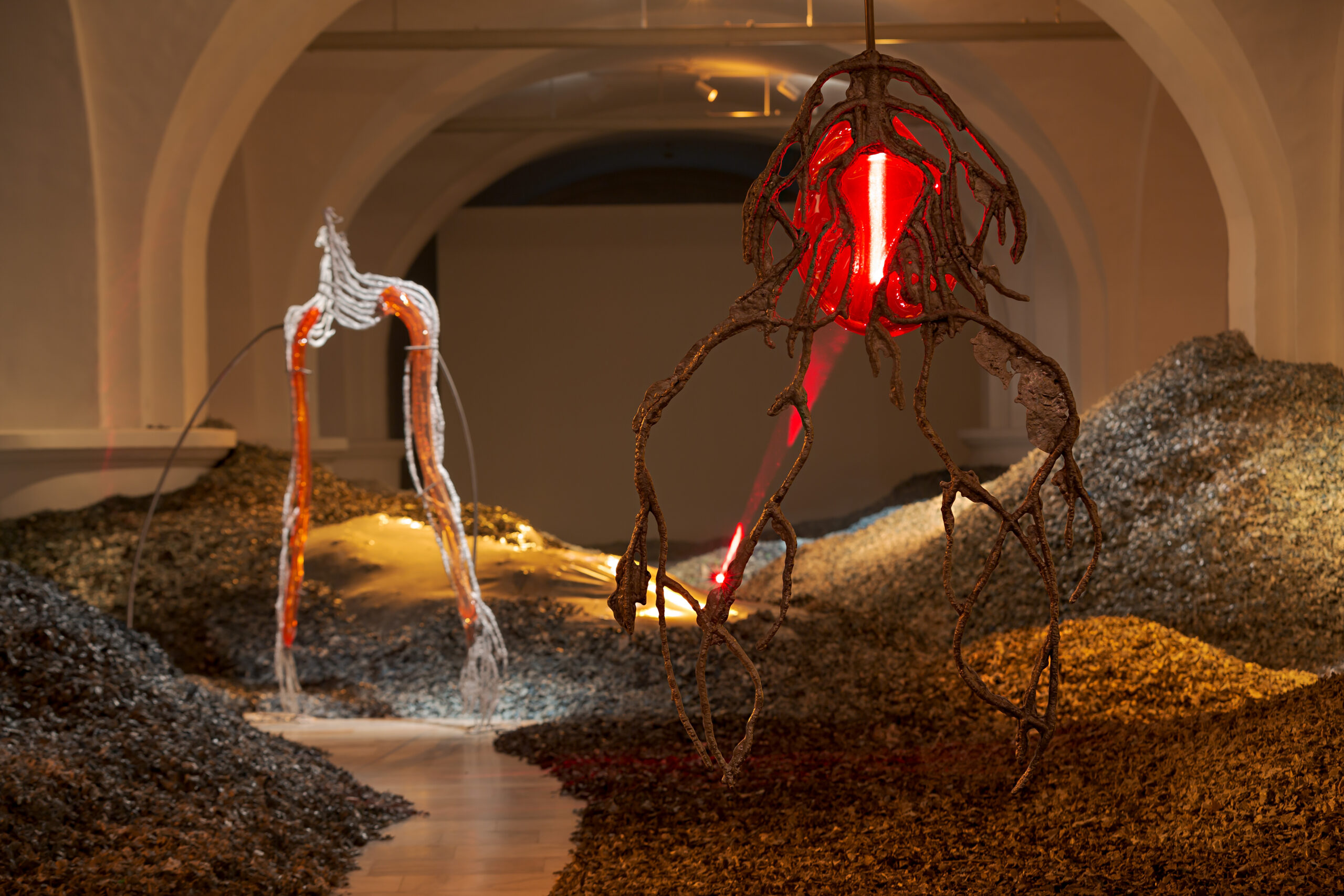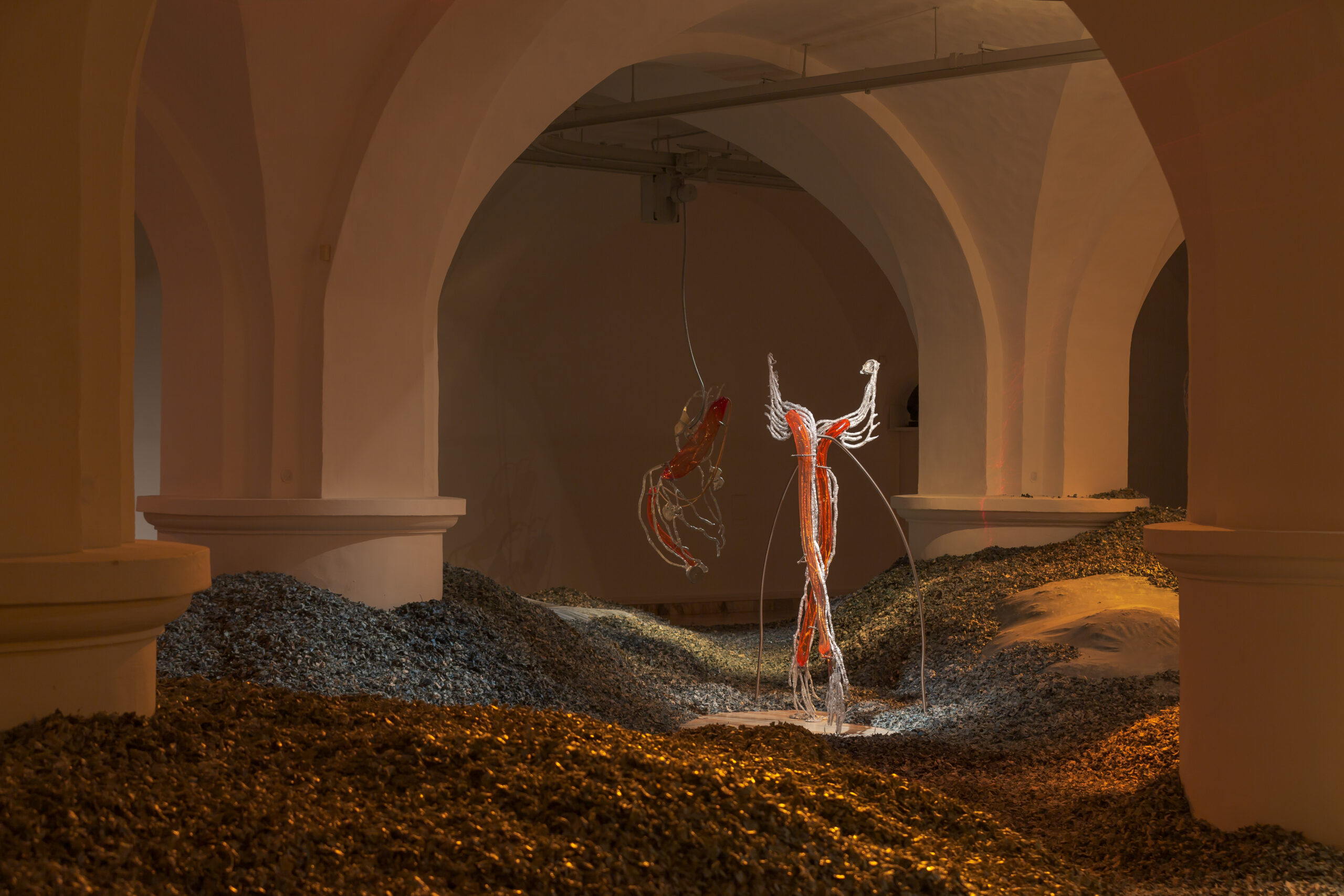Lithuanian creators Pakui Hardware will be presenting an exhibition Inflammation at the 60th International Art Exhibition of La Biennale di Venezia. The exhibition explores the topic of the climate crisis and the fevers that consume the planet and its people, continuing the conversation initiated by the 2019 Lithuanian pavilion that won the Golden Lion award for Best National Participation. A part of Inflammation is currently displayed in Vilnius.
Lithuanian creators are reflecting the pertinent dangers of the climate crisis — the planet and the people are consumed by the fever of destruction. Pakui Hardware collective, based in Vilnius and Berlin, is pointing out climate change issues through the new solo exhibition Inflammation.
The collective and the exhibition have been selected as Lithuania’s representatives at the 60th International Art Exhibition of La Biennale di Venezia 2024 which will be held from April 20 till November 24. The Lithuanian National Museum of Art will present this year’s Lithuanian pavilion. Currently, a part of Inflammation is displayed in the Museum of Applied Arts and Design in Vilnius, the capital of Lithuania.
 The large-scale exhibition depicts the “flaming” planet and the human bodies, a scorched landscape with plastic soil dunes, dreamlike arches of geological and pre-historical fossils, and inflamed artificial objects that resemble human organs. Through surreal artistic imagery, the creators use the metaphor of inflammation — which, medicinally, signifies a defensive reaction of the body to remove the harmful stimuli and induce healing — to reflect on the damage inflicted on humanity and the planet.
The large-scale exhibition depicts the “flaming” planet and the human bodies, a scorched landscape with plastic soil dunes, dreamlike arches of geological and pre-historical fossils, and inflamed artificial objects that resemble human organs. Through surreal artistic imagery, the creators use the metaphor of inflammation — which, medicinally, signifies a defensive reaction of the body to remove the harmful stimuli and induce healing — to reflect on the damage inflicted on humanity and the planet.
One of the sources of inspiration for the exhibition’s theme was Marya Rupa and Raj Patel’s book Inflamed: Deep Medicine and the Anatomy of Injustice. The book, just like the exhibition, connects humanity with the planet, showing the economic and social damage caused to both, and questions the segmentation of the mind from the body, and human from nature.
 Ona Lozuraitytė-Išorė and Petras Išora-Lozuraitis created the architecture of the installation. The plastic used for the exhibition is seen as a highly durable fossil that will outlive generations and is one of the areas of inflammation that afflict the planet’s ecosystems.
Ona Lozuraitytė-Išorė and Petras Išora-Lozuraitis created the architecture of the installation. The plastic used for the exhibition is seen as a highly durable fossil that will outlive generations and is one of the areas of inflammation that afflict the planet’s ecosystems.
The creators behind the Pakui Hardware collective, Neringa Černiauskaitė and Ugnius Gelguda, have included the artwork of a modernist painter Marija Teresė Rožanskaitė whose paintings have explored the relationship between the body and medicine.
Climate crisis representation in former biennials
Pakui Hardware’s exhibition is not the only Lithuanian entry to explore the themes of climate crisis in their work submitted to the biennial. In 2019, the Lithuanian pavilion presented an opera-performance Sun & Sea (Marina) at the 58th International Art Exhibition La Biennale di Venezia. The performance, created by Rugilė Barzdžiukaitė, Vaiva Grainytė, and Lina Lapelytė, won the Golden Lion for Best National Participation.
Through a seemingly light-hearted scenario — holyday-goers sunbathing on the beach — the pavilion addressed the ecological problems, the fragility of humans, and the fears of climate catastrophe.
 La Biennale di Venezia is focusing on tackling climate change not only through art — in 2022 the festival achieved climate neutrality in all five festival editions, becoming an example of the art’s potential to make a substantial ecological impact.
La Biennale di Venezia is focusing on tackling climate change not only through art — in 2022 the festival achieved climate neutrality in all five festival editions, becoming an example of the art’s potential to make a substantial ecological impact.
A part of Pakui Hardware’s Inflammation is open for visitors at the Museum of Applied Arts and Design, which is one of the departments of the Lithuanian National Museum of Art, in Vilnius till February 11.

